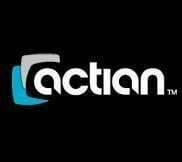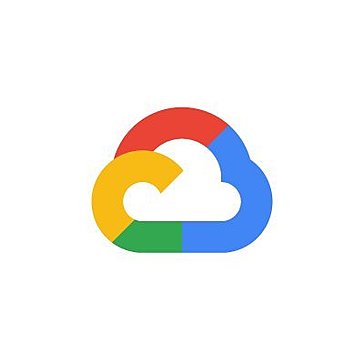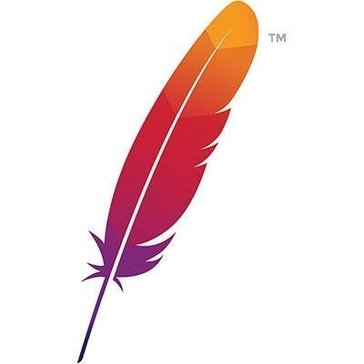Description

Actian NoSQL

Objectivity/DB
Comprehensive Overview: Actian NoSQL vs Objectivity/DB
Actian NoSQL and Objectivity/DB are two NoSQL database solutions, but their focus and implementations differ significantly. Below is a comprehensive overview, including their primary functions, target markets, market share, user base, and key differentiating factors.
Actian NoSQL
a) Primary Functions and Target Markets:
- Primary Functions: Actian NoSQL, formerly known as Versant, is a high-performance, object-oriented database management system. It is designed for complex, high-volume applications that require fast data retrieval and storage. The database is adept at handling object models natively, thus reducing the impedance mismatch between the object-oriented programming languages and relational databases.
- Target Markets: Actian NoSQL is primarily targeted at industries where complex data relationships, scalability, and performance are crucial. These typically include aerospace, telecommunications, financial services, and real-time computing. It is particularly suited for applications that involve large-scale simulations, scientific data processing, and enterprise-level systems with complex data structures.
b) Market Share and User Base:
- Market Share: Actian's NoSQL database solutions are niche products that do not compete directly with mainstream NoSQL databases like MongoDB or Cassandra. Their market share is smaller, partly because their use cases are specialized and they are often leveraged in high-stakes industries where reliability and performance are prioritized over sheer numbers.
- User Base: Given the product’s specialization, the user base is composed mainly of enterprises with specific, high-performance needs. This includes long-term customers in sectors like aerospace and telecommunications, where the complexity of data and relationships necessitates a solution like Actian NoSQL.
Objectivity/DB
a) Primary Functions and Target Markets:
- Primary Functions: Objectivity/DB is an object-oriented NoSQL database known for its ability to handle high-volume and highly complex data. It supports distributed database architectures and provides seamless access to distributed data through its federated database approach. It is optimized for data written and read by machines rather than humans, meaning it is excellent for machine-to-machine communications, Internet of Things (IoT), and real-time analytics.
- Target Markets: Objectivity/DB is targeted at industries that require real-time data processing and complex data modeling, such as defense, telecommunications, manufacturing, and transportation. It is often used in systems where real-time decision-making and operational intelligence are critical, such as in military defense systems and IoT applications.
b) Market Share and User Base:
- Market Share: Like Actian NoSQL, Objectivity/DB has a smaller market share compared to leading NoSQL databases. Its specialization in handling complex data systems and real-time processing positions it uniquely among enterprises that have these specific needs.
- User Base: The user base for Objectivity/DB typically includes large enterprises and government agencies that require the robustness of an object-oriented approach and the flexibility to manage highly complex and distributed data.
c) Key Differentiating Factors:
-
Data Model Approach:
- Actian NoSQL focuses heavily on the object model, providing deep integration for object-oriented programming, which can simplify development and reduce the time-to-market for complex applications.
- Objectivity/DB is also object-oriented but is distinguished by its federated architecture, which makes it suitable for managing distributed systems and real-time analytics involving massive data sets.
-
Industry Focus:
- Both databases serve niche markets, but Actian NoSQL has a significant presence in aerospace and telecommunications, while Objectivity/DB is more entrenched in defense, IoT, and industries requiring high-performance, real-time data processing.
-
Performance and Scalability:
- Both databases are known for high performance; however, Objectivity/DB's focus on real-time data processing and distributed architectures is a notable advantage for real-time system requirements.
-
Technical Complexity and Integration:
- Actian NoSQL often offers smoother integration with object-oriented programming languages due to its object database nature.
- Objectivity/DB's federated database structure allows for more complex distributed systems, which can be beneficial for large-scale enterprise integration but may require more sophisticated setup and management.
In conclusion, while both Actian NoSQL and Objectivity/DB are not mainstream in terms of market share, they offer tailored solutions for specific high-performance and complex data scenarios. Their strengths lie in their object-oriented approaches and the specialized industries they serve, where their capabilities are necessary and valued.
Contact Info

Year founded :
Not Available
Not Available
Not Available
Not Available
Not Available

Year founded :
Not Available
Not Available
Not Available
Not Available
Not Available
Feature Similarity Breakdown: Actian NoSQL, Objectivity/DB
When comparing NoSQL databases like Actian NoSQL and Objectivity/DB, it’s essential to recognize both the core similarities and unique characteristics that differentiate these platforms. Here's a breakdown of their features:
a) Core Features in Common
-
Scalability:
- Both solutions are designed to handle large volumes of data and transactions, suitable for enterprise-level applications requiring horizontal scaling.
-
High Availability & Performance:
- Both support features for ensuring data availability and optimized performance, which is crucial for mission-critical applications.
-
Flexible Schema:
- As NoSQL databases, both platforms allow for flexible schemas, accommodating the diverse and evolving nature of modern data.
-
Data Modeling:
- They support complex data models, which is common among object-oriented and NoSQL databases to represent data intuitively.
-
Distributed Architecture:
- Both databases can be configured in a distributed architecture, enhancing fault tolerance and data distribution across multiple nodes.
b) User Interfaces Comparison
-
Actian NoSQL:
- Typically, Actian NoSQL may offer a more traditional command-line interface and APIs for application development and integration.
- It might provide basic graphical tools for database management but relies heavily on programmatic access for configuration and operation.
-
Objectivity/DB:
- Objectivity/DB often offers a more sophisticated graphical user interface (GUI) for database management, which can make it easier for administrators to visualize and manage complex object data.
- It may provide visualization tools that are particularly beneficial for managing relationships and hierarchies within large datasets.
c) Unique Features
-
Actian NoSQL:
- One of the distinguishing features of Actian NoSQL might be its integration into the broader Actian portfolio, providing more seamless integration with other Actian products for analytics and data warehousing.
- It may also offer specific optimizations for high-throughput environments such as telecommunications or sensor data processing.
-
Objectivity/DB:
- Objectivity/DB is particularly known for its strength in managing highly complex data relationships, which is critical for applications like real-time sensor fusion, IoT, and network management.
- It offers advanced features for object management and object versioning, which can be crucial for applications requiring historical data insights and temporal data management.
Both platforms have their strengths, and choosing between them often depends on the specific requirements of the use case, such as the complexity of data relationships, integration needs with other systems, and user interface preferences.
Features

Scalability and Performance
Security and Reliability
Flexibility and Adaptability

Scalability for Large Datasets
Flexibility in Data Management
High Performance and Reliability
User-Friendly Interfaces
Best Fit Use Cases: Actian NoSQL, Objectivity/DB
Actian NoSQL
a) Best Fit Use Cases for Actian NoSQL
-
Businesses Handling Complex Data Structures: Actian NoSQL is well-suited for companies that need to manage complex hierarchical or networked data. Its ability to handle large-scale and intricate data models makes it ideal for industries such as telecommunications, where network topologies can be complex.
-
Real-Time Data Processing: Businesses requiring real-time data access and manipulation, like financial services that deal with real-time trading systems, would benefit from Actian NoSQL's strengths in processing data on-the-fly without downtime.
-
Organizations Focused on High Availability and Scalability: Companies undergoing rapid growth or expecting significant increases in data volume, such as e-commerce or online gaming enterprises, can leverage Actian NoSQL for its scalability and high-availability architecture to meet their expanding data needs.
-
IoT and Sensor Data Management: With the increasing ubiquity of IoT devices, businesses in manufacturing or logistics aiming to process vast amounts of sensor data can find Actian NoSQL advantageous given its ability to handle unstructured and semi-structured data efficiently.
b) Best Fit Use Cases for Objectivity/DB
-
Industries with Complex Interrelationships: Objectivity/DB excels in environments where understanding the relationships between disparate data points is crucial, such as in defense and intelligence applications for threat analysis and situational awareness.
-
Use Cases Involving Graph Databases: For projects that require graph database capabilities, such as social networks or recommendation systems, Objectivity/DB offers powerful support for managing large-scale graph-based data models.
-
Scientific Research and Engineering Applications: Engineering companies or scientific research organizations that manage large volumes of technical or simulation data can benefit from Objectivity/DB’s ability to handle complex, interconnected datasets.
-
Telecommunications Network Management: As Objectivity/DB supports network and relationship-based data, it is suitable for telecommunications companies managing network infrastructure and performance metrics.
d) Industry Verticals and Company Sizes
-
Actian NoSQL caters mainly to large enterprises and businesses that operate across industry verticals demanding high-performance data processing, such as finance, telecommunications, manufacturing, and retail. Its scalability features make it a viable choice for companies of varying sizes, but particularly larger organizations with significant data processing requirements.
-
Objectivity/DB is primarily targeted toward industries that handle complex datasets and require robust relationship management, including defense, aerospace, telecommunications, and scientific research. Though the database can scale effectively, it is generally more suited for medium to large organizations where the complexity and volume of data necessitate a specialized solution.
In summary, both Actian NoSQL and Objectivity/DB address specific market needs with their unique strengths. Actian NoSQL is advantageous for businesses prioritizing real-time data management and scalability, while Objectivity/DB excels in managing complex and interconnected data relationships. Their suitability varies based on the industry, business model, and specific data management requirements of the organization.
Pricing

Pricing Not Available

Pricing Not Available
Metrics History
Metrics History
Comparing undefined across companies
Conclusion & Final Verdict: Actian NoSQL vs Objectivity/DB
When comparing Actian NoSQL and Objectivity/DB, both products are tailored for specific needs in the dynamic landscape of database management systems, each offering unique advantages and potential drawbacks.
a) Overall Value Assessment
Actian NoSQL provides strong capabilities for organizations looking to leverage a wide-column store database. It's particularly well-suited for real-time analytics and dealing with diverse data at scale. It often shines in environments that need efficient handling of large volumes of unstructured data.
Objectivity/DB, on the other hand, is an object-oriented database system ideal for use cases where the relationship between data points is complex and requires robust handling of connected data. It excels in sectors such as telecommunications, defense, and IoT, where data relationships are intricate and vital to application performance.
Best Overall Value: The value offered by either database depends on the specific use case. Actian NoSQL provides better value in environments requiring flexible scalability and real-time performance across various data types. Objectivity/DB offers superior value in settings where data interrelationships are critical, particularly in enterprise environments that require high performance and reliability from an object-oriented database.
b) Pros and Cons
Actian NoSQL
-
Pros:
- Efficient handling of large volumes of varied data.
- Real-time data processing capabilities make it suitable for instant analytics.
- Flexibility to scale horizontally, accommodating growing data demands.
-
Cons:
- Might require a steeper learning curve for those less familiar with NoSQL.
- Can lack the features necessary for highly intricate data relationships compared to object databases.
Objectivity/DB
-
Pros:
- Strong performance with highly connected data and complex relationships.
- Provides a robust object-oriented approach, advantageous for certain industries.
- High reliability and support in mission-critical applications.
-
Cons:
- Potentially higher complexity in implementation and maintenance, especially if the development team is more accustomed to relational databases.
- Less effective in environments primarily dealing with widespread unstructured data without complex interrelationships.
c) Recommendations
-
Assess Your Data Characteristics: If your data is highly relational and involves complex structures, Objectivity/DB makes a compelling choice. Conversely, if you need a flexible, scalable solution for diverse data types, Actian NoSQL may better suit your needs.
-
Consider Industry Requirements: Industries like telecommunications or defense, which often deal with deeply connected data, should consider Objectivity/DB. In contrast, businesses focused on real-time analytics across large, unstructured data sets could find more value in Actian NoSQL.
-
Evaluate Team Expertise: Teams experienced with NoSQL might find implementing and optimizing Actian NoSQL more straightforward. Those with skills in object-oriented programming may extract more value from leveraging Objectivity/DB.
Ultimately, the decision depends on the specific needs of the organization, including the nature of the data, performance requirements, and existing technical expertise. Ensure a clear understanding of your operational demands and strategic goals before proceeding with the choice of database system.
Add to compare
Add similar companies



